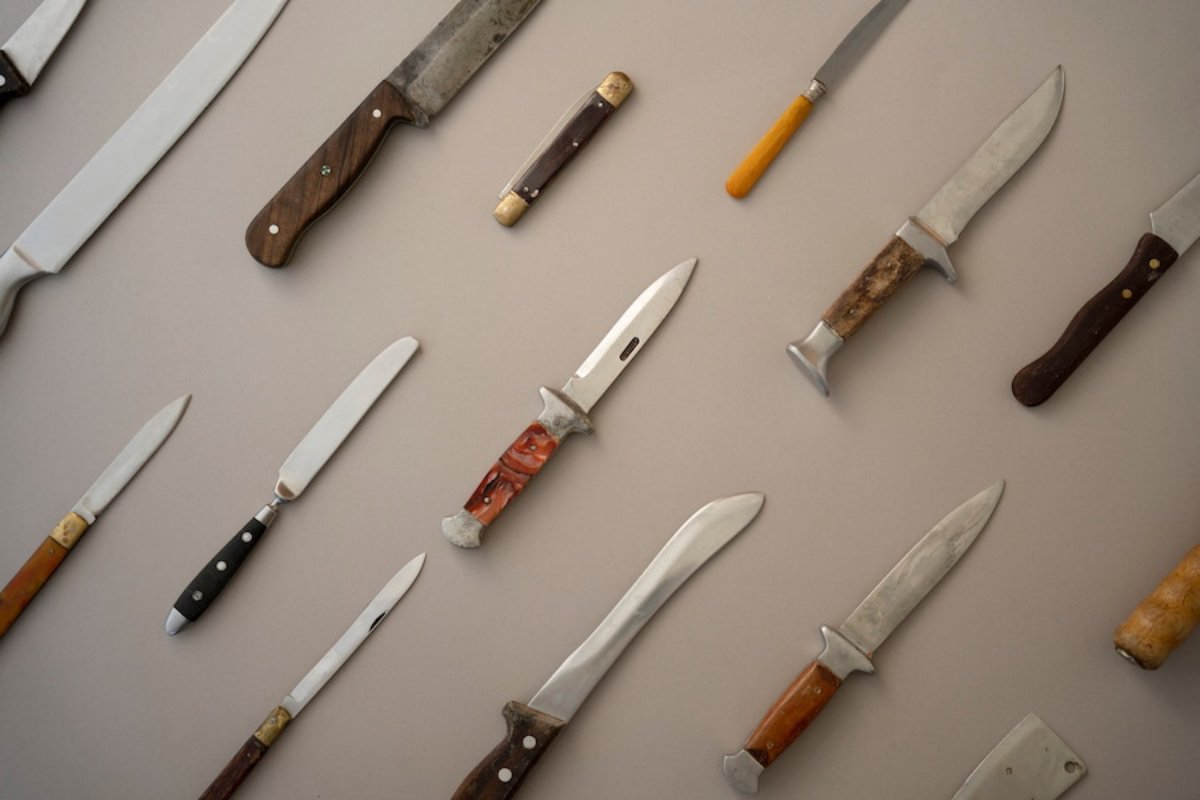In the culinary world, the choice of tools can significantly impact the quality of the food prepared. For professional chefs, knives are more than just utensils; they are extensions of their skills, allowing them to work with precision and efficiency. Among the various options available, German knives have earned a reputation as some of the finest in the kitchen. Here’s why professional chefs prefer German knives and how they contribute to an exceptional cooking experience.
Professional chefs prefer knives for sale in the kitchen for their superior craftsmanship, sharpness, versatility, ergonomic design, durability, and ease of maintenance. These knives are built to handle the demands of a professional kitchen, offering a balance of strength and precision that is hard to match. By choosing German knives, chefs can rely on tools that not only enhance their cooking experience but also carry a legacy of quality that has stood the test of time.
Craftsmanship and Quality
German knives are renowned for their exceptional craftsmanship. The tradition of knife-making in Germany dates back centuries, with brands like Wüsthof and Zwilling J.A. Henckels leading the way in producing high-quality cutlery. These knives are made using advanced manufacturing processes combined with traditional techniques, resulting in a product that boasts precision, durability, and a flawless finish.
Most German knives are forged, meaning they are made from a single piece of high-carbon stainless steel that is heated, shaped, and hardened. This german knives forging process enhances the knife’s durability and provides a well-balanced weight, which is crucial for professional chefs who need to use their knives for extended periods without fatigue.
Superior Sharpness and Edge Retention
One of the key reasons professional chefs prefer German knives is their sharpness and the ability to maintain a keen edge. German knives typically have a blade angle of 14 to 20 degrees, making them slightly thicker than Japanese knives, which often have a sharper angle. This blade thickness provides additional strength and stability, allowing chefs to cut through tougher ingredients without compromising the edge.
Moreover, the high-carbon stainless steel used in German knives ensures better edge retention compared to other materials. The blend of carbon and stainless steel in these knives gives them the perfect balance between hardness and flexibility, making them less prone to chipping or breaking while maintaining their sharpness over time. For chefs who require reliable performance day in and day out, this edge retention is a significant advantage.
Versatility in the Kitchen
Professional chefs work with a wide range of ingredients, from delicate herbs to tough meats and thick-skinned vegetables. German knives are designed with versatility in mind, allowing chefs to use them for various tasks without needing to switch tools frequently. The slight curve of a German knife’s blade makes it ideal for rocking motions, which are commonly used for chopping herbs, vegetables, and other ingredients quickly and efficiently.
Additionally, the weight and thickness of German knives make them suitable for tasks that require more force, such as breaking down poultry or cutting through dense vegetables like squash. This versatility is particularly appealing to chefs who value having a multipurpose tool that can handle most kitchen tasks with ease.
Ergonomic Design for Comfort and Safety
Professional chefs often spend long hours in the kitchen, making it essential for their tools to be not only efficient but also comfortable to use. German knives are known for their ergonomic design, which helps reduce hand fatigue and ensures better control during use. The handles of these knives are typically designed to fit comfortably in the hand, with a balance that allows for precise cutting motions.
The bolster, which is the thick portion of metal between the blade and the handle, adds weight to the knife and enhances balance, making it easier to control during intricate tasks. It also serves as a protective guard to prevent the chef’s fingers from slipping onto the blade, improving safety during use. This combination of comfort, balance, and safety makes German knives a preferred choice for professionals who need reliable performance throughout a busy shift.
Durability and Longevity
Investing in quality kitchen tools is important for professional chefs, and German knives are known for their durability and long lifespan. The high-carbon stainless steel used in these knives is resistant to rust, stains, and corrosion, which helps preserve the blade’s integrity over time. Even with frequent use, a well-maintained German knife can last for many years, making it a cost-effective choice for chefs who want to avoid the hassle and expense of replacing knives regularly.
The durability of German knives extends beyond the blade. The handle materials, often made from robust synthetic materials like POM (polyoxymethylene) or even high-quality wood, are designed to withstand the rigors of professional kitchens. This ensures that the knife remains in good condition, even in demanding environments where it may be exposed to moisture, heat, and heavy use.
Ease of Maintenance
Maintaining a sharp edge is crucial for any knife, and German knives are relatively easy to hone and sharpen. Due to their slightly softer steel compared to some Japanese knives, German blades can be sharpened with a honing steel or sharpening stone without too much effort. Professional chefs appreciate this ease of maintenance, as it allows them to keep their tools in optimal condition without needing specialized equipment or techniques.
Additionally, the high-carbon stainless steel used in German knives reduces the risk of rusting and staining, making them less demanding in terms of upkeep. Regular cleaning, drying, and occasional honing are typically sufficient to keep these knives performing at their best.
Tradition and Prestige
German knives carry a sense of tradition and prestige that appeals to many chefs. Brands like Wüsthof, Zwilling J.A. Henckels, and Messermeister have been producing knives for hundreds of years, establishing a legacy of quality and excellence. For chefs, using a German knife is not only about functionality but also about being part of a longstanding tradition in the culinary world.
This sense of tradition is often reflected in the design and craftsmanship of the knives, with many models featuring classic aesthetics that appeal to both professional chefs and home cooks. The combination of tradition, quality, and performance creates a sense of pride in owning and using a German knife in the kitchen.




